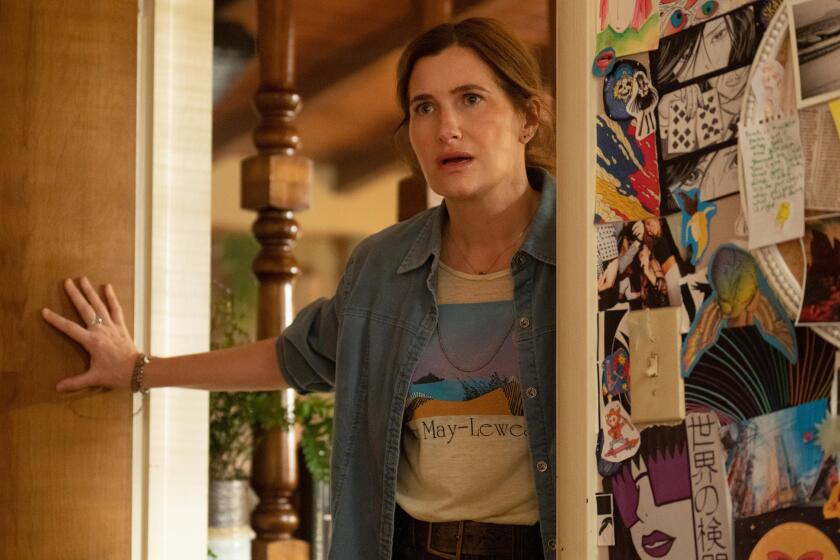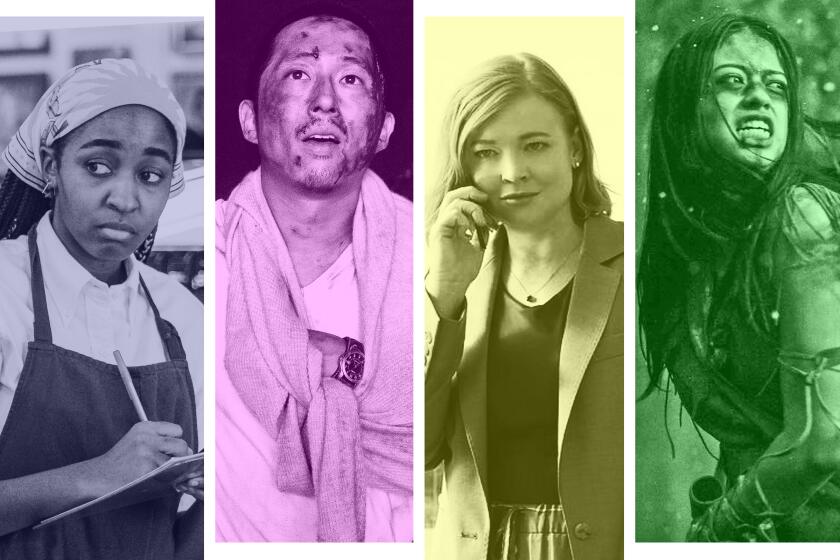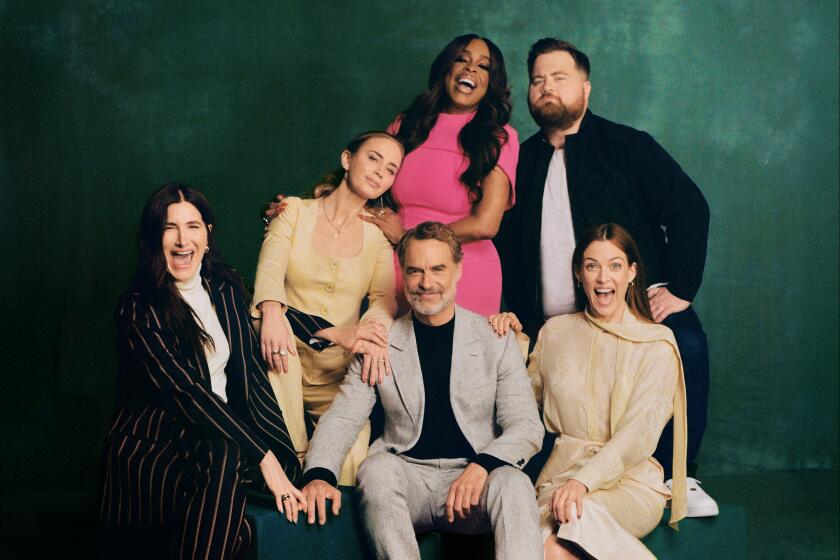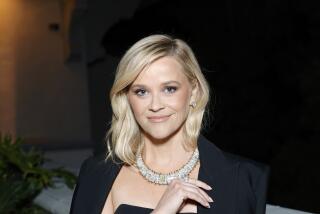When broken is beautiful: How Kathryn Hahn and show creators built ‘Tiny Beautiful Things’
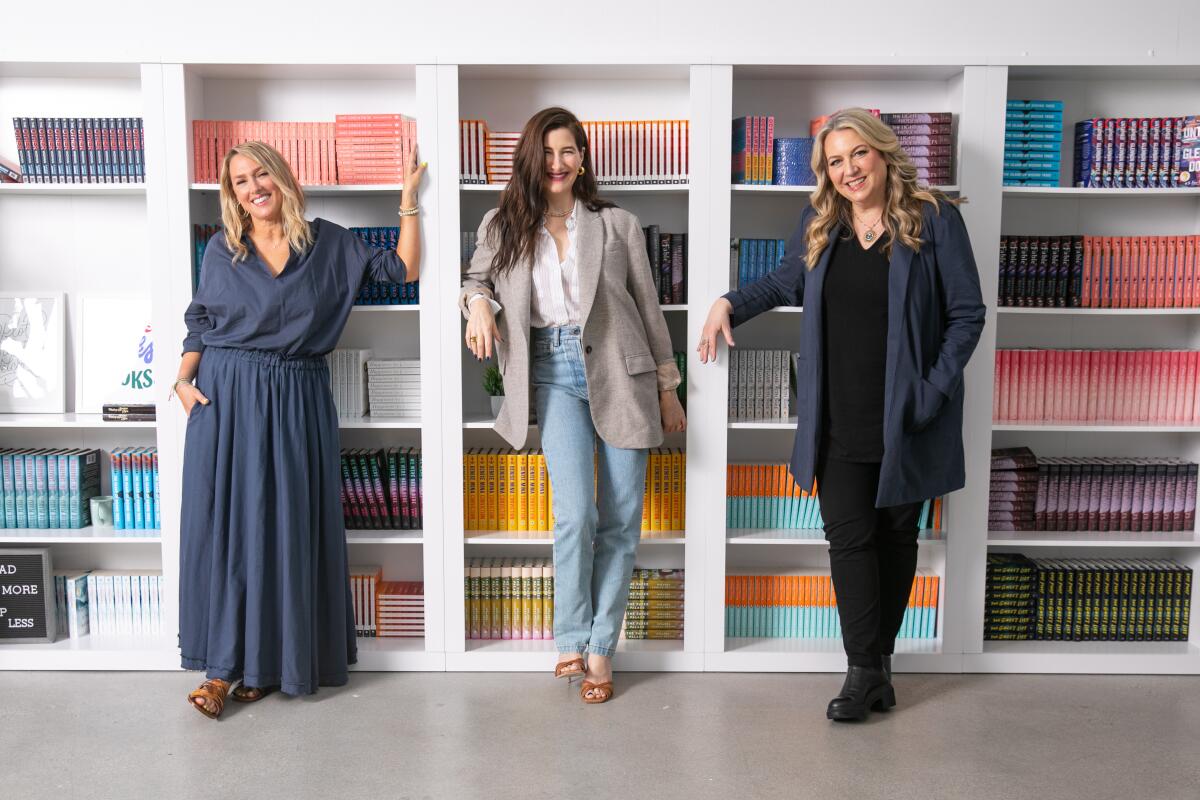
When author Cheryl Strayed began writing the advice column “Dear Sugar” for the Rumpus back in 2010, she upended the traditional format. Responding anonymously to letters full of heartache, shame or fear, Strayed bared her own deepest terrors and, in doing so, held out a path toward healing.
The extraordinary approach engendered a swift and overwhelming response. A subsequent book of columns, “Tiny Beautiful Things: Advice From Dear Sugar,” was an international bestseller, released only four months after her memoir “Wild” hit those same charts.
“Wild,” about Strayed’s transformative journey hiking the Pacific Crest Trail, was adapted into a feature film by Reese Witherspoon’s Hello Sunshine company; Witherspoon played Strayed, and Laura Dern played her mother. They are all executive producers on the Hulu limited series “Tiny Beautiful Things,” along with Liz Tigelaar, the show’s creator.
A massive fan of Strayed’s work — her son is named Wilder in part because of the book — Tigelaar’s initial excitement about the series intensified when she learned that Strayed wanted to be involved as a writer. The two worked closely to bring the book to life.
Liz Tigelaar, who wrote and produced the adaptation, discusses adapting the collection of essays, based on the popular column ‘Dear Sugar,’ for a limited series on Hulu.
“We would talk, and then Liz would go away and work on the pilot and then show me a draft, and we would talk more,” Strayed says, speaking via Zoom with Tigelaar, in a chat that took place before the writers’ strike. “The only thing that really mattered was that we make a show that honors the book, that doesn’t replicate it, but is a good show that people want to watch and that people feel in their hearts.”
They had to figure out who Sugar would be, because Strayed had already been portrayed — by name — in “Wild” and didn’t want to revisit that. “On the other hand, I was very adamant that the things that formed me had to form this character,” she says. “She had to have lost her mother young to cancer, the way I lost my mother young to cancer. She had to have had an abusive father from whom she was estranged, she had to have grown up poor in a rural environment, and she had to have gotten married and divorced young. Those things are experiences that not only informed me, but they’re things I return to again and again in the advice, and so for those letters to make sense, she has to have shared my history.”
Structurally, Tigelaar wanted to create a nonlinear memoir, “because that’s what I was so enthralled with about Cheryl” and the columns, she says. “We’re really not holding the audience’s hand.” In the writers room, “we got to dig in, to try to portray this idea of all the selves that live inside us all the time and to make time and memory fluid. Those memories are what formed you, they’re all inside of you. You can be having a conversation and you can feel 22 again, or 11.”
Their lead, Clare, is played by three actresses. Marlow Barkley is little Clare; Sarah Pidgeon is young Clare. Kathryn Hahn plays present-day Clare, battling life on several fronts: She’s struggling in her marriage, her teenage daughter is in full rebellion, her unfulfilling job at a retirement home is precarious thanks to some questionable behavior, and beneath it all, she harbors a sea of grief. As the “Dear Sugar” column enters her life, she begins diving into it.
Our BuzzMeter panel of veteran TV journalists predicts the winners in 14 categories of the 2023(?) Emmys. You can, too, in our weekly polls.
“To bridge these incredibly private, honest responses to strangers compared to how she was actually feeling, and where she was in her own emotional journey in life, was very compelling to me,” Hahn says of taking on the role. “Also, the fact that these anonymous letters are so filled with generosity, and so kind, in a world where people can lash out and write a string of the five meanest words and press ‘send’ to a billion people, that felt like a salve.”
Descriptions about Hahn’s performance tend to use the word “messy.” “Sure, getting drunk and climbing through your window has a messiness to it,” Tigelaar says of an early scene. “It’s also resourceful. She’s the breadwinner of her family, who’s been in a long, successful marriage. Yes it has its struggles; every marriage does. She’s raised an incredibly capable smart, authentic, beautiful inside-and-out teenage daughter who’s forging her own path. Those are all successes.”
Adds Strayed, “So much of the spirit of the show is saying that complexity is beautiful. The broken is a beautiful place to begin.”
It’s certainly what drew Hahn to the part.
“I think people now hear the word ‘messy,’ or ‘flawed heroine,’ and it’s its own kind of trope,” she says. “What appeals to me is a person that you can step inside, and you can see out 360 degrees through their eyeballs — there are no blocks. I felt that reading this pilot.”
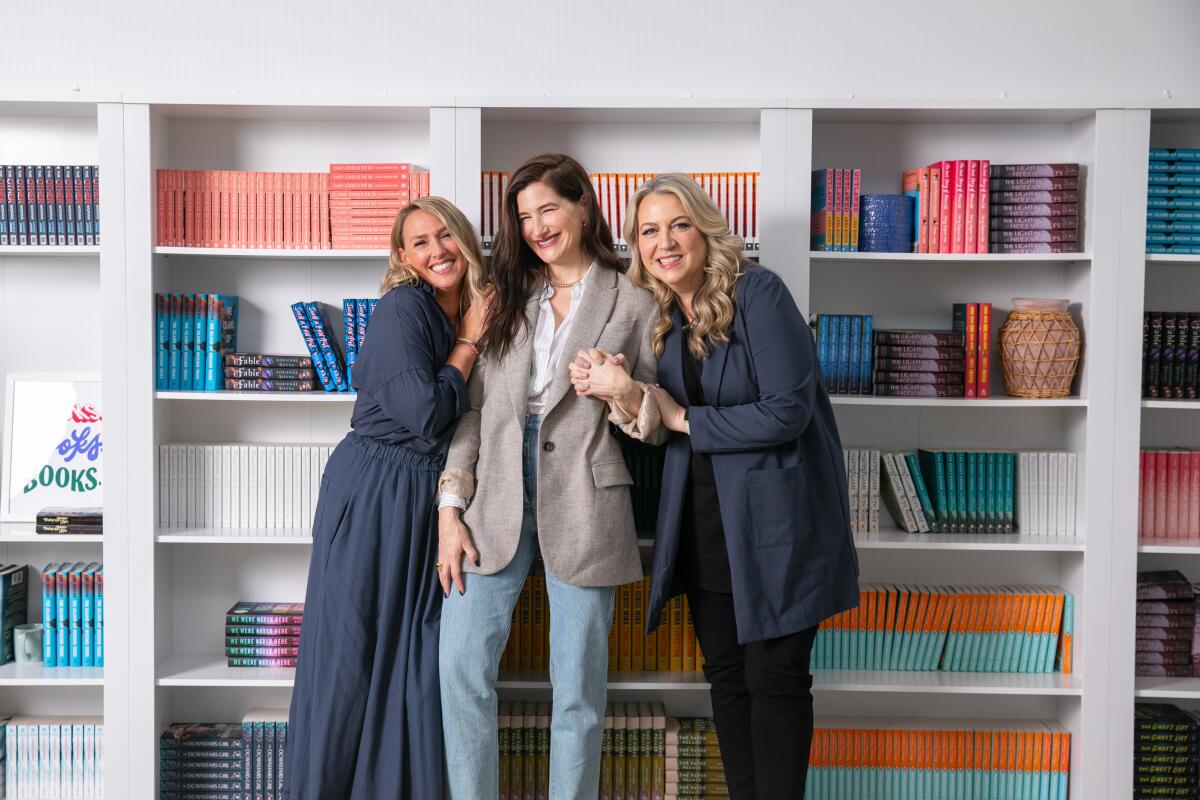
An early scene in which Clare secretly shares a room at the retirement home with a patient, because her husband kicked her out of the house, gave Hahn her initial insight into Clare’s complicated nature.
“There’s something of the survivalist in her — no matter what, she will find that light,” she notes. “There’s an optimism in that, and also a child, sleeping next to a mom, and such a stubborn, rebellious, self-involved, not-thinking-big-picture, narrow-minded, shortsighted human — that all was very exciting and came together in that moment.”
“Tiny Beautiful Things” is currently a limited series, but the show’s finale provides no pat resolutions, which means it could easily be extended. “We agree,” says Strayed, who still writes the “Dear Sugar” column on Substack. Adds Tigelaar, “We’re open to “Big Little Lies-ing” it at any time. Cheryl and I would do this forever.”
For actors Riley Keough, Emily Blunt, Kathryn Hahn, Niecy Nash-Betts, Murray Bartlett and Paul Walter Hauser, learning new skills come with the job.
More to Read
From the Oscars to the Emmys.
Get the Envelope newsletter for exclusive awards season coverage, behind-the-scenes stories from the Envelope podcast and columnist Glenn Whipp’s must-read analysis.
You may occasionally receive promotional content from the Los Angeles Times.
